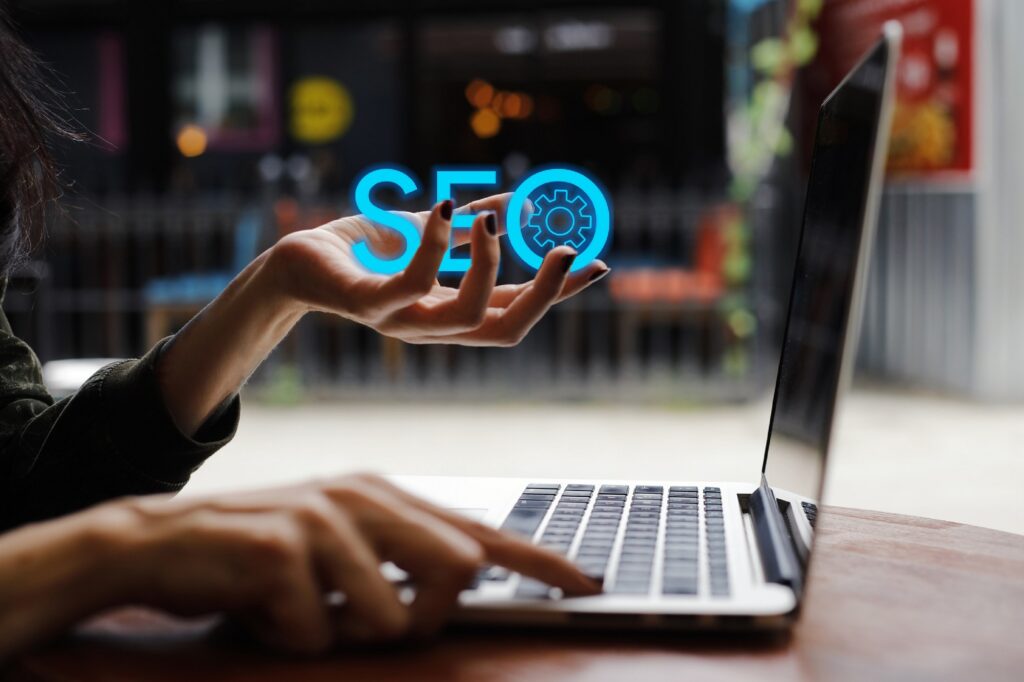
August 7, 2024, 0 Comments
On-Page vs. Off-Page Software Engine Optimization
Search engine optimization (SEO) is a critical component of any successful digital marketing strategy. It involves various techniques aimed at improving a website’s visibility on search engine results pages (SERPs). Within SEO, two primary strategies are often discussed: on-page and off-page SEO. Both are essential for achieving a high-ranking website, but they focus on different aspects of optimization. Understanding the difference between on-page and off-page SEO, and knowing how to effectively implement both, is crucial for anyone looking to enhance their online presence.
What is On-Page SEO?
On-page SEO refers to the optimization techniques applied directly to the pages of your website. These techniques are within your control and involve making adjustments to various elements of your website to make it more search engine-friendly and improve its ranking. The goal of on-page SEO is to ensure that your website is easily accessible to search engine crawlers and that it provides relevant, valuable content to users.
Key elements of on-page SEO include:

Content Quality and Relevance:
Content is the backbone of on-page SEO. High-quality, relevant content that addresses the needs and queries of your target audience is crucial. This includes optimizing content for specific keywords, ensuring it is informative, engaging, and provides value to the reader. The use of headings, subheadings, and bullet points also makes content easier to read and digest.
Keyword Optimization:
Keywords play a central role in on-page SEO. Proper keyword research and implementation help search engines understand the topic of your content. Keywords should be naturally integrated into various elements of the page, including the title, headings, meta descriptions, and body content. Avoid keyword stuffing, as it can lead to penalties from search engines.
Title Tags and Meta Descriptions:
Title tags are HTML elements that define the title of a web page. They should be concise, descriptive, and include the primary keyword for the page. Meta descriptions, although not a direct ranking factor, provide a summary of the page content and can influence click-through rates. Both elements should be optimized to encourage users to click on your link when it appears in search results.
URL Structure:
A clean, descriptive, and keyword-rich URL structure is important for both search engines and users. URLs should be easy to read and understand, as well as reflect the content of the page. Avoid using long, complex URLs with unnecessary characters.
Internal Linking:
Internal linking refers to the practice of linking to other pages within your website. This helps search engines understand the structure of your site and discover new content. It also enhances the user experience by guiding visitors to related information.
Image Optimization:
Images are a vital part of content, but they need to be optimized for SEO. This includes using descriptive file names, alt tags, and compressing images to ensure fast loading times. Optimized images contribute to better accessibility and can improve your site’s overall SEO performance.
Mobile-Friendliness:
With the increasing use of mobile devices for browsing, having a mobile-friendly website is essential. Google’s mobile-first indexing means that the mobile version of your site is considered the primary version. Ensuring that your site is responsive and offers a seamless experience across all devices is critical for on-page SEO.
Page Load Speed:
Page speed is a significant ranking factor. A slow-loading website can frustrate users and lead to high bounce rates. Optimizing your website’s load time by compressing files, using browser caching, and minimizing JavaScript can enhance both user experience and SEO.
What is Off-Page SEO?
Off-page SEO, on the other hand, refers to the actions taken outside of your website to improve its ranking on SERPs. While on-page SEO is about optimizing the elements within your control, off-page SEO is about building the authority and reputation of your site in the broader web. Off-page SEO focuses on increasing your website’s credibility, authority, and relevance through various external efforts.

Key elements of off-page SEO include:
Backlinks:
Backlinks, or inbound links, are the most significant aspect of off-page SEO. They are links from other websites that point to your site. Search engines view backlinks as votes of confidence, and sites with high-quality, relevant backlinks tend to rank higher. Not all backlinks are created equal; links from authoritative and relevant sites carry more weight than those from low-quality or unrelated sites.
Social Signals:
Social media activity can indirectly impact your SEO. When your content is shared, liked, or commented on across social platforms, it signals to search engines that your content is valuable and relevant. While social signals are not a direct ranking factor, they can contribute to increased visibility and traffic, which can enhance your SEO efforts.
Brand Mentions:
Brand mentions, whether linked or unlinked, can positively influence your site’s authority. When your brand is mentioned across various online platforms, it increases your visibility and can drive traffic to your site. Search engines recognize these mentions and may consider them in their ranking algorithms.
Influencer Marketing:
Partnering with influencers in your industry can be a powerful off-page SEO strategy. Influencers can help promote your content to a broader audience, leading to increased exposure, traffic, and backlinks. This can boost your site’s authority and improve its ranking.
Guest Blogging:
Writing guest posts for other reputable sites in your industry can help you build backlinks and establish your authority. Guest blogging allows you to reach new audiences and generate traffic back to your site. It’s important to focus on quality over quantity and to choose sites that are relevant and authoritative.
Online Reviews and Reputation Management:
Online reviews and ratings can significantly impact your site’s reputation and, consequently, its SEO. Positive reviews on platforms like Google My Business, Yelp, and industry-specific review sites can enhance your credibility and attract more visitors. Managing your online reputation by responding to reviews and addressing any negative feedback is also crucial.
Local SEO and Citations:
For businesses targeting local customers, local SEO is a critical aspect of off-page SEO. This includes optimizing your Google My Business listing, building citations (mentions of your business name, address, and phone number on other websites), and encouraging customer reviews. Local SEO helps improve your visibility in local search results and can drive targeted traffic to your site.
The Importance of Both On-Page and Off-Page SEO

Both on-page and off-page SEO are essential components of a comprehensive SEO strategy. While on-page SEO lays the foundation by ensuring that your website is optimized for search engines, off-page SEO builds on that foundation by increasing your site’s authority and credibility.
- On-Page SEO Focuses on Relevance: It ensures that your website is relevant, accessible, and provides value to users. Without on-page SEO, search engines may struggle to understand your content, and users may find your site difficult to navigate.
- Off-Page SEO Focuses on Authority: It helps build your site’s reputation and authority in the eyes of search engines. Even if your site is perfectly optimized on-page, it may struggle to rank without strong off-page signals, such as high-quality backlinks and positive brand mentions.
A successful SEO strategy involves a balanced approach to both on-page and off-page SEO. By focusing on both, you can improve your site’s visibility, drive more traffic, and ultimately achieve better rankings on search engines.
Conclusion
Understanding the difference between on-page and off-page SEO is crucial for developing a well-rounded SEO strategy. On-page SEO involves optimizing the elements of your website that you can control, while off-page SEO focuses on building authority and trust through external efforts. Both are equally important and work together to improve your website’s ranking and visibility on search engines. By effectively implementing both strategies, you can create a strong, competitive online presence that attracts more visitors and drives business success.

Recent Comments